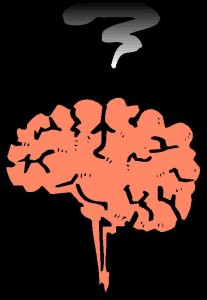Gluten and the Nervous System
Last month I published a post on Gluten and the Brain which turned out to be one of my most read posts! Obviously, the information on how gluten effects the brain and nervous system is not well known. After some additional research, here are some of the results I found on Gluten and the Nervous System
Is Gluten Sensitivity a Neurological Disease?
Celiac.com 08/13/2009 – In the latest issue of the journal Medical Hypotheses, Dr. Rodney Philip Kinvig Ford of the Children’s Gastroenterology and Allergy Clinic in Christchurch, New Zealand, offers up a compelling hypothesis regarding celiac disease and gluten sensitivity, which asserts that the broad array of associated symptoms are more fully explained using a neurological perspective, than using a digestive/nutritional perspective.
Under Dr. Ford’s hypothesis, neurological causes, rather than gut damage and nutritional deficiency, best explain the myriad symptoms experienced by sufferers of celiac disease and gluten-sensitivity.
Under Dr. Ford hypothesis, if gluten is the assumed cause of harm, then exposure to gluten in sensitive individuals may cause neurological harm through a combination of cross-reacting antibodies, immune complex disease and direct toxicity.
Hypothesis: Gluten causes symptoms, in both celiac disease and non-celiac gluten-sensitivity, by its adverse actions on the nervous system.
In another article, the following conditions may be caused by gluten intolerance (see Gluten, Celiac Disease and the Brain for more information:
- Autism Spectrum Disorder (ASD)
- Attention Deficit Hyperactivity Disorder (ADHD)
- Gluten Ataxia
- Peripheral Neuropathy
- The development of Schizophrenia
According to another Celiac.com article, Tg6 Antibody Plays a Key Role in Celiac Disease-Related Neurological Disorders, Jefferson Adams, author, shares the following information:
About one in ten people with celiac disease also suffer from associated neurological disorders, mainly from a condition involving the cerebellum called gluten ataxia, and another involving the peripheral nerves called gluten neuropathy. For many people celiacs with gluten ataxia, their neurological problems are their sole symptom. Only about 1 out of 3 people with gluten ataxia and celiac disease will show classic intestinal damage when given a biopsy. This can make proper diagnosis difficult for them. Also, there’s presently no reliable way to predict which people with gluten intolerance might develop neurological problems.
Although it is always good to thoroughly research a condition so as to know the best treatment, lifestyle changes, and misc. adaptations, folks with some of the above conditions may have a long road to recover. According to Scott Adams, creator and founder of Celiac.com, some of this damage may be irreversible:
Celiac.com 12/28/2006 – Antonio Tursi and colleagues at the Digestive endoscopy Unit, Lorenzo Bonomo Hospital, Andria, (BA), Italy have published a study which concludes that any neurological damage caused by celiac disease may be irreversible—even after treatment with a gluten-free diet. Although the study is relatively small, its conclusions are important—especially to those who suffer from the neurological effects of celiac disease. More research needs to be done to determine why antineuronal
Of course, research continues and new finding can be hopeful.
For more information on these studies and other articles on the subject, check out the extensive listing on Celiac.com



Sunday, February 17th 2013 at 5:26 am |
At the time I was diagnosed as having celiac disease, I was also told that I had irreversible brain damage as well. Yes, the two go together. And the sooner you are diagnosed the better. Gluten free for life!!
Sunday, February 17th 2013 at 4:49 pm |
Yes, I understand, but remember that the doctors don’t always have the last say!! Good luck to you!!